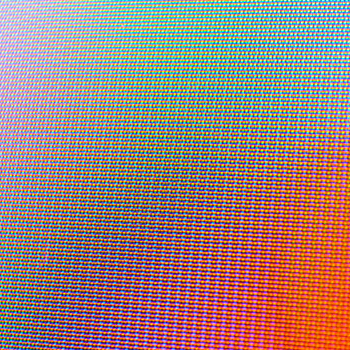What are the zeros of #7x^3+70x^2+84x+8=0# ?
2 Answers
Numerical approximations:
#x_0 ~~ -0.10419#
#x_1 ~~ -8.62388#
#x_2 ~~ -1.27193#
Explanation:
Given:
#f(x) = 7x^3+70x^2+84x+8#
Discriminant
The discriminant
#Delta = b^2c^2-4ac^3-4b^3d-27a^2d^2+18abcd#
In our example,
#Delta = 34574400-16595712-10976000-84672+5927040 = 12845056#
Since
Tschirnhaus transformation
To make the task of solving the cubic simpler, we make the cubic simpler using a linear substitution known as a Tschirnhaus transformation.
#0=1323f(x)=9261x^3+92610x^2+111132x+10584#
#=(21x+70)^3-9408(21x+70)+326144#
#=t^3-9408t+326144#
where
Trigonometric substitution
Since all three roots of this cubic are real, it falls into the irreducible case (casus irreducibilis) of Cardano's method. Using Cardano's method will result in a solution expressed in terms of cube roots of complex numbers which cannot be simplified.
In such cases I prefer to use a trigonometric substitution, putting:
#t = k cos theta#
and choosing
We have:
#0 = k^3cos^3theta-9408kcostheta+326144#
Putting
#color(white)(0) = 1404928cos^3theta-1053696costheta+326144#
#color(white)(0) = 351232(4cos^3theta-3costheta)+326144#
#color(white)(0) = 25088(14cos3theta+13)#
So:
#cos3theta = -13/14#
So:
#3 theta = +-cos^(-1)(-13/14)+2npi#
So:
#theta = +-1/3cos^(-1)(-13/14)+(2npi)/3#
So:
#cos theta = cos(1/3cos^(-1)(-13/14)+(2npi)/3)#
So the distinct roots are:
#t_n = 112 cos(1/3cos^(-1)(-13/14)+(2npi)/3)" "n = 0,1,2#
Then
So the distinct roots of the original cubic are:
#x_n = 1/3(-10+16cos(1/3cos^(-1)(-13/14)+(2npi)/3))" "n = 0, 1, 2#
Numerical approximations:
#x_0 ~~ -0.10419#
#x_1 ~~ -8.62388#
#x_2 ~~ -1.27193#
There are no rational roots.
Explanation:
That George is correct in providing the solutions through the method that he did is evident from using the rules found in Precalc I. Descartes' Rule of Signs reveals that there are 3 or 1 negative real roots and no positive real roots.
The Bounding results from Synthetic Divisions reveal that all of them lie in the interval (-10, 0).
The Rational Root Theorem (or Rational Zeros Theorem) indicates that the only possible negative rational zeros are -8, -4, -2, -8/7, -1, -4/7, -2/7, and -1/7.
None of these are solutions; hence, there are no rational solutions.
Therefore the polynomial will not factor.
We must use a more advanced approach, as George has taken.
Are you sure that you have copied the problem down correctly?


